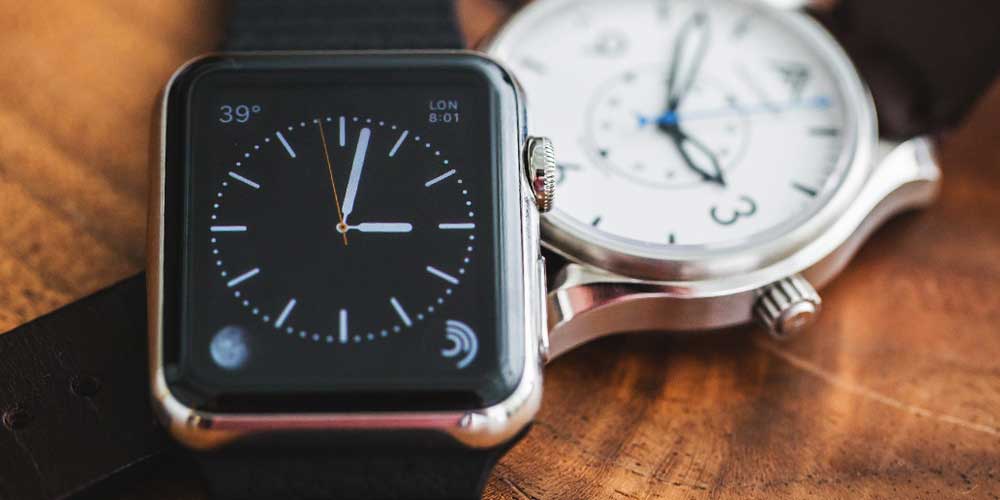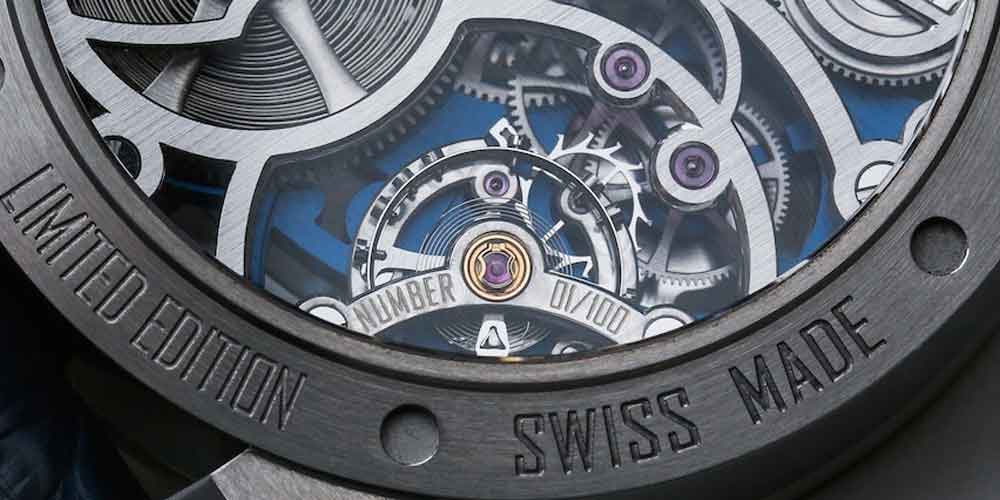The thing we wear on our wrists is getting a new life, and that is tech. With touchscreen and sensors, watches are becoming "smartwatches."
We're seeing an era in which everything wants to be improvised with technology. But how do these relatively new gadgets stand against the giants which has built their fame for ages?
We humans see tech a solution to a problem. When we have no way to communicate, we create telephones.
When we need communication mobile, we create smaller devices. When we need portable computing machines, we develop smaller computers we can hold on our palms. Technologies were known to create something based on our needs; it fixes things and eases the way we interact with our world.
But tech isn't stopping there. It's also moving into an industry we know thrives and survives well even without them. Techs are getting into your wardrobe; they're coming as part of your daily clothing. In short, they want to be inseparable from humans.

With tech getting on our wrists, Apple has it with the Apple Watch, Samsung has it and Pebble also.
More contenders are up and against each other for the market that is once dominated with the likes of Swiss watchmakers. But how do these gadgets affect the industry? They certainly caught a lot of headlines, and they're all up against those old-fashioned watchmakers that made the value of a "watch" at stake.
Apple and others have taken a long time before having the proper time for the proper technology, and the vision to being their products to the market.
What we have on our wrists, previously, were worn by millions; they show bits of time, date and some others. Tech makers are fond on putting more things than necessary, but this time, they made another successful debut.
In the age of information, tech companies are putting more and more information. Smartwatches put a lot more things on your wrist. And the possibility is that there will be more things than you ever need on a device strapped tightly on your wrists.
Will these smartwatches be a replacement to the old-fashioned handmade state-of-the-art pile of cogs and gears? No. The traditional market will always have its own fans because they never want to purely put information on the wrist.
They all move in a different market.
A Fashion In The Making, An Icon As A Bet
Watches like these are the things we wear on our wrists.
While they aren't getting better as time goes, they are still in value. But with smartwatches occupying the market, Swiss watchmakers were seeing a drop of sales for the first time since 2009 when many consumers seemed to be switching to the sleeker and techier option.
The loss of market share for those Swiss watchmakers wasn't entirely unexpected. The industry they're in has been slow to react on the development of smartwatches, and that made them difficult to compete.
Many companies are increasingly embracing the trend of smartwatches. With the many new possibilities, they can introduce new things to expect new results. As an example, smartwatches are equipped with different sensors, beside just syncing to mobile devices, they can act as a wearable which tracks the user's health.
Many things are possible, but they're just in the different league with those Swiss watches.
Smartwatches and those traditional watches aren't sharing the same path even when they are similar; they're aren't the same and never will be.
While a smartwatch could do everything an ordinary watch can do, there is a thing the tech-on-your-wrist still couldn't be (at least yet): old-fashioned watches aren't about the information they give, or even about accuracy (analogue-mechanical watches don't have absolute accuracy like digital watches or smartwatches). It's not that they're handmade or machine-made either, or whether they're created out of precious metals.
Watches won't be replaceable because they're representing an icon; it's part of a fashion: it's a symbol.
Even watches that don't use precious metals can be highly valued. The reason is their brand names. This made them an icon, a jewelry to wear. Watches that have the highest-level of craftsmanship can even worth a lot more.
That's the appeal that won't go away at least yet.
Those that love Swiss watches, or any traditional analogue-mechanical watches for that matter, won't or may have just a little interest in smartwatches. That is also the reason why those people who have no previous interest in watches, may love smartwatches.

Bytes Vs. Cogs
People have seen gadgets of all sorts. We have apps in our mobile devices that can practically do anything we want. As an example, we can create notes on smartphones we own by just tapping and typing. Save them and we can easily share or edit them. Simple as that. But apparently we still use that sheet of paper and a pen to scribble those notes we may still leave on office desks and refrigerators.
In fact, we still use our single-lens DSLR and portable digital camera because of their optical zooms to take some great low light pictures, rather than using our megapixels smartphones with a multitude of cameras.
As for traditional watches vs. smartwatches, they are all about time and date keeping. In fact, this is the only thing they have in common. Otherwise, they aren't comparable.
Not only is the watchmaking industry populated, but it contains some of the most recognizable brands associated with luxury and lifestyle.
On top of that, the smartwatch industry is already having some stiff competitors from their own rivals. Furthermore, the prices they ask are more or less equivalent to some highend watches.
If we look at some of the most recognizable names in watchmaking, we could point out their years, or even a century long experience in the market.
What made them thrive is their distinctive products that made them the bests in their business. Meanwhile, tech companies have no distinguishable history in time keeping. They're just relying on previous technologies they created that put their names up, and also from their hordes of loyal fans that have faith on them.
Expensive watchmakers approach the premium market by experience.
They have the skills in selling timepieces based on their history, heritage, design and materials. Apple which created the Apple Watch haven't become the recognizable brand by accident; the company has sold millions of iPhones and other i-related products.
And here, it's venturing to the market where competitors focus on quality rather than quantity.
One another important aspect is its lifespan. A smartwatch is a smart watch. Just like any other "smart" devices, it's packed with sensors and hardware and also software. While these do consume more batter, they do need updating.
Will consumers want to pay a high price for a device that will be outdated next year?
Tech's life is short; it's rare to see a technology (device) that last years before being replaced by better ones. While expensive watches can be an investment, smartwatches can't because they depreciate so quickly.
So will Apple and others can turn their time-keeping tech to become a piece of desired fashion accessory? And can they stand up against its competition, from low-end quartz watches to high-end Rolexes? Smartwatches are great, and they're good for more than just time. They're good for the modern culture than relies on information on-the-go.
But ordinary watches are like paper and pencils; those sticky notes we love to stick anywhere they can stick; they're the polaroid camera of our generation which is still adorable, they're the DSLR which is heavier but stands for a single purpose that is for the more premium taste and quality; it's a classic that won't age as fast and worth the investment.
It's more of a taste and a hobby rather than embracing the needs of a more portable computer.
Since they have their own pool of fans and enthusiasts, both smartwatches and analogue-mechanical watches are moving within a different territory. So no, they won't be replaced anytime soon, sooner, or even later.